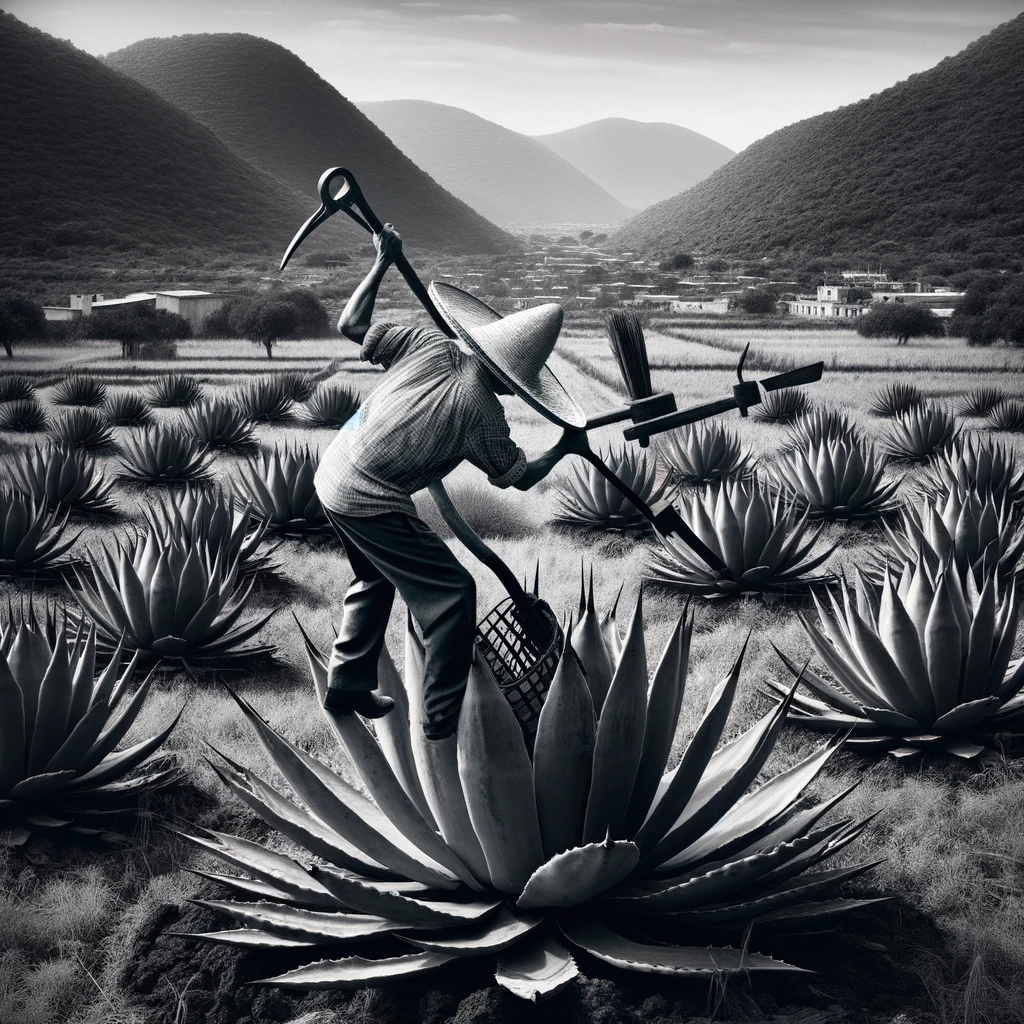-

Understanding Agave: The Foundation of Mezcal
Mezcal is a unique spirit, deeply rooted in tradition and the rich biodiversity of the agave plant. Agave is not just the key ingredient in mezcal; it’s a versatile plant with a fascinating story, stretching from its botanical characteristics to its roles in history and various industries. Let’s take a closer look at the agave plant, its natural habitat, historical significance, and uses beyond mezcal.
Agave Basics
Agave is a succulent plant belonging to the Agavaceae family, with over 200 species varying in size, shape, and color. These plants are known for their rosette pattern of thick leaves, which can be spiked around the edges. The piña, or heart of the agave, is where the sugars needed for mezcal production are found.
Where Agave Grows
Agave plants can adapt to a wide range of environments, but they’re primarily found in Mexico, the heartland of mezcal and tequila production. The diverse climates and terrains across Mexico support a variety of agave species, each bringing a unique flavor profile to mezcal.
Agave’s History
Agave has been integral to the cultures of indigenous peoples in the Americas for thousands of years, used not only for making alcoholic beverages like pulque and mezcal but also for food, medicine, and fiber. The distillation process that gives us mezcal today began with the Spanish in the 16th century, but the plant’s importance stretches back far earlier.
Beyond Mezcal
While mezcal showcases agave’s versatility, the plant’s uses extend to sweeteners, fibers, and traditional medicine. Agave syrup is a popular natural sweetener, and the plant’s fibers are used in making durable textiles and ropes. In traditional practices, agave has served as a remedy for various ailments and as a material for construction.
A Focus on Sustainability
With the growing popularity of mezcal, sustainability has become a crucial concern, particularly regarding the overharvesting of wild agave species. Our commitment to supporting artisanal producers and sustainable practices helps preserve agave’s biodiversity and benefits the communities that have maintained these traditions for generations.
Agave is more than just the key ingredient in mezcal; it represents a rich cultural heritage and a commitment to ecological stewardship. As we enjoy mezcal, we’re not just tasting a spirit; we’re partaking in a legacy that spans centuries, rooted in the remarkable agave plant.
What is Agave?
What is Agave?
Written By Gerry Martinez

